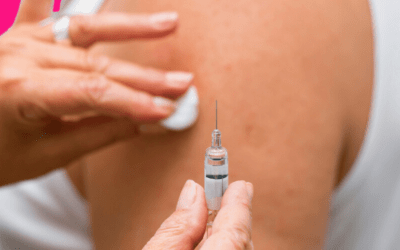In recent years, the landscape of primary care within the NHS has witnessed a significant transformation in response to the growing demand for services. Central to this evolution is the increasing recognition of the role played by non-registered health care professionals, also know as Healthcare Support Workers (HCSWs), which, in primary care includes the roles of Health Care Assistants (HCAs) and Assistant Practitioners.
The role of HCAs in Primary Care
As the management and delivery of care increasingly shift to the primary care setting, there emerge opportunities for an expanded scope of nursing knowledge, skills, and attributes. HCAs, now assume a substantial role in patient care within primary care settings. Despite not being registered with a professional body, HCAs are entrusted with a duty of care and carry legal responsibilities towards the patients they care for. HCAs must work under the supervision of registered nurses or other qualified healthcare professionals, and their role is essential in supporting the delivery of high-quality primary care services. They are accountable to their employer, who is responsible for their training, supervision, and overall oversight until their competence is demonstrated.
Navigating Varied Responsibilities

It’s important to note that the specific duties and responsibilities of health care assistants may vary depending on the healthcare facility, regional regulations, and the scope of practice defined by healthcare providers. Tasks may include carrying out baseline observations, undertaking new patient health checks, managing blood pressure monitoring, undertaking wound care and supporting with the management of chronic disease clinics. They may also engage in health promotion initiatives such as smoking cessation and if suitably trained perform venepuncture, record ECGs, administer vaccinations and assist with other clinical duties.
Accountability and Delegation
The principles of delegation remain paramount in the healthcare setting, irrespective of the task at hand. HCAs should undergo proper training, be assessed for competence, and have a clearly defined job description outlining their role. The Royal College of Nursing (RCN) provides guidance on accountability and delegation which is applicable to all members of the nursing team, whether you’re a registered or non-registered health care professional, emphasising the importance of clear guidelines and protocols. Additionally, practices should ensure appropriate medical indemnity coverage for HCAs, aligned with the scope of their practice. The RCN stresses the importance of supervision, with the level depending on the task’s nature and the associated risks.
Specialised Tasks
HCAs may find themselves being delegated all, or part of, specific tasks, including the administration of vaccines. HCAs often play a crucial role in the role out of vaccination campaigns including administering flu and COVID-19 vaccines during the winter months and participating in the routine administration of certain vaccines under the national immunisation programme. While the RCN supports HCAs in administering specific vaccines under certain conditions, it is crucial that they are appropriately trained and have the support and supervision from a registered healthcare professional. More details can be found in the National Minimum Standards and Core Curriculum for Immunisation Training of Healthcare Support Workers.
Working within the scope of practice
Irrespective of the assigned task, it is important to have well-defined guidelines and protocols in position and that the HCA is not tasked with making independent clinical judgements. Employers must also ensure that employees only work within the scope of their competence. Alongside undertaking any initial training, HCAs should engage in ongoing education, training, and professional development to enhance their knowledge and skills. This not only ensures the delivery of high-quality care but also contributes to personal and professional growth. Continuous support, training, and collaboration are key elements in ensuring HCAs contribute significantly to patient-centred care.
Care Certificate and Continuous Development

The Care Certificate, introduced in response to the Cavendish review, sets standards for the induction of HCAs, aiming to ensure consistency in training and competencies. Employers are encouraged to incorporate Care Certificate standards into their induction programmes for HCAs employed since April 2015. These standards focus on providing introductory skills, knowledge, and behaviours in order to deliver safe, high-quality, and compassionate care.
NHS Health Education England have also published their Primary Care and General Practice Nursing Career and Core Capabilities Framework which helps to set out the competencies required for health care assistants to work safely and effectively in their roles. This framework is crucial in helping to promote and support nurses to ensure safe and effective nursing practices in order to meet the needs of their patients.
CQC Inspections and the Role of HCAs in Primary Care
The Care Quality Commission (CQC) inspects GP practices to ensure that staff possess the necessary skills, knowledge, and experience to deliver effective care. General Practices are expected to demonstrate how they have trained and assessed HCAs’ competence, employing a combination of methods such as observed clinical encounters, external training events and courses, and reflective practices with a suitably qualified mentor.
In summary
It’s evident that the role of HCAs in primary care, especially in the realm of immunisation, is becoming increasingly crucial within the changing healthcare landscape. The new NHS Vaccination Strategy also highlights the potential for HCAs to take on expanded responsibilities in this area in the future.
Through effective training, continuous development, and collaborative efforts, HCAs contribute significantly to patient-centred care, ensuring that individuals receive quality services within the limits of their competence. Recognising and supporting the invaluable contributions of HCAs is essential for a resilient and patient-focused healthcare system.
Interested to learn more?

Join us on the 2nd February for a FREE lunchtime learning sessions which will delve into the Legal and Professional Aspects of Vaccine Administration. Suitable for both Registered and Non-Registered Health Care Professionals working in Primary Care settings, Practice Managers, Training Managers and Clinical Leads.
The session will cover:
- Who can do what? Registrants vs. non registrants
- Competencies in immunisation
- Minimum training and supervision standards
- Who can supervise and sign off?
- Spreading misinformation around vaccines
- Informed consent around vaccines
- Common mistakes and misunderstandings in practice
To learn more about the courses we offer, including Immunisation Training for both Registered Health Care Professionals and Health Care Assistants and Support Workers please visit our Course Categories.




